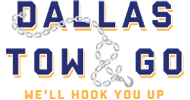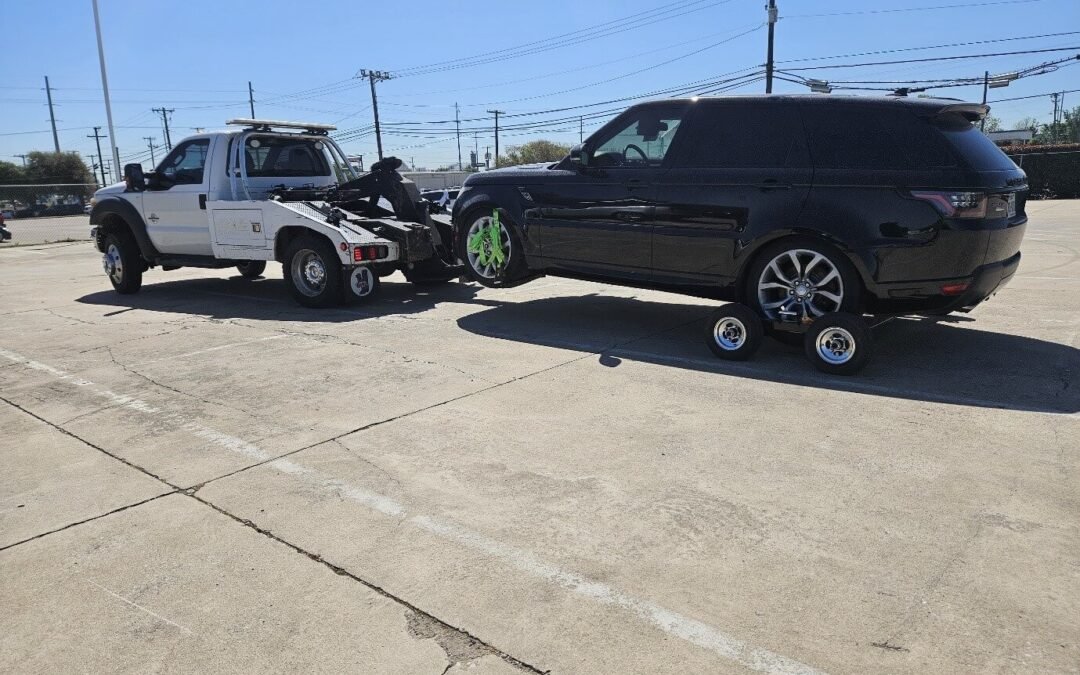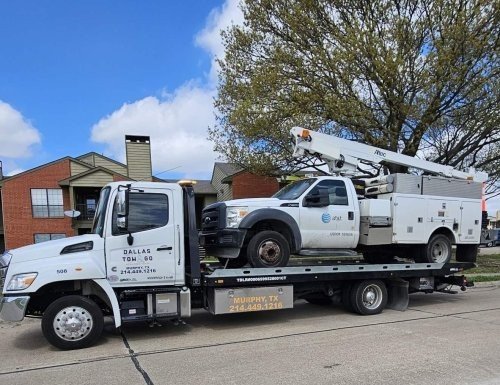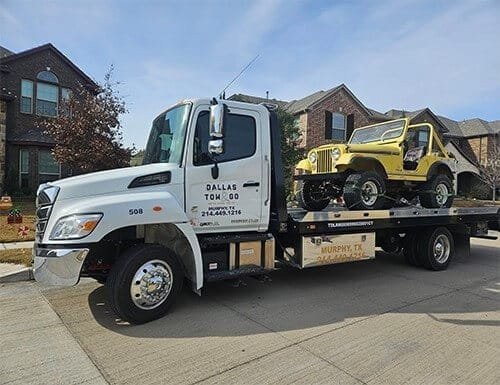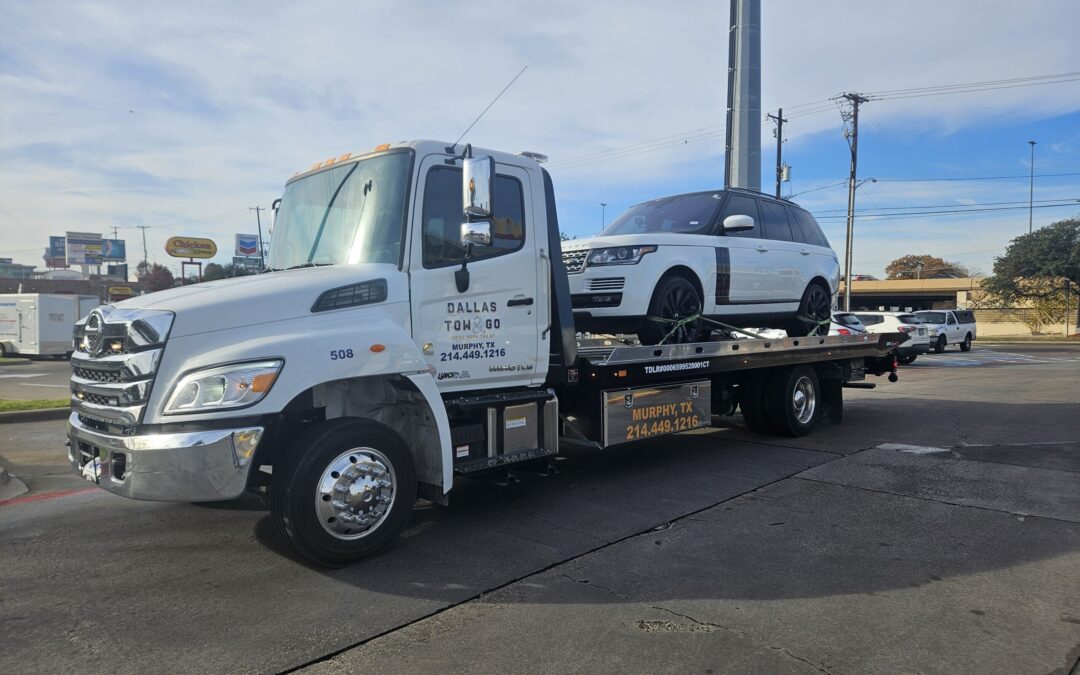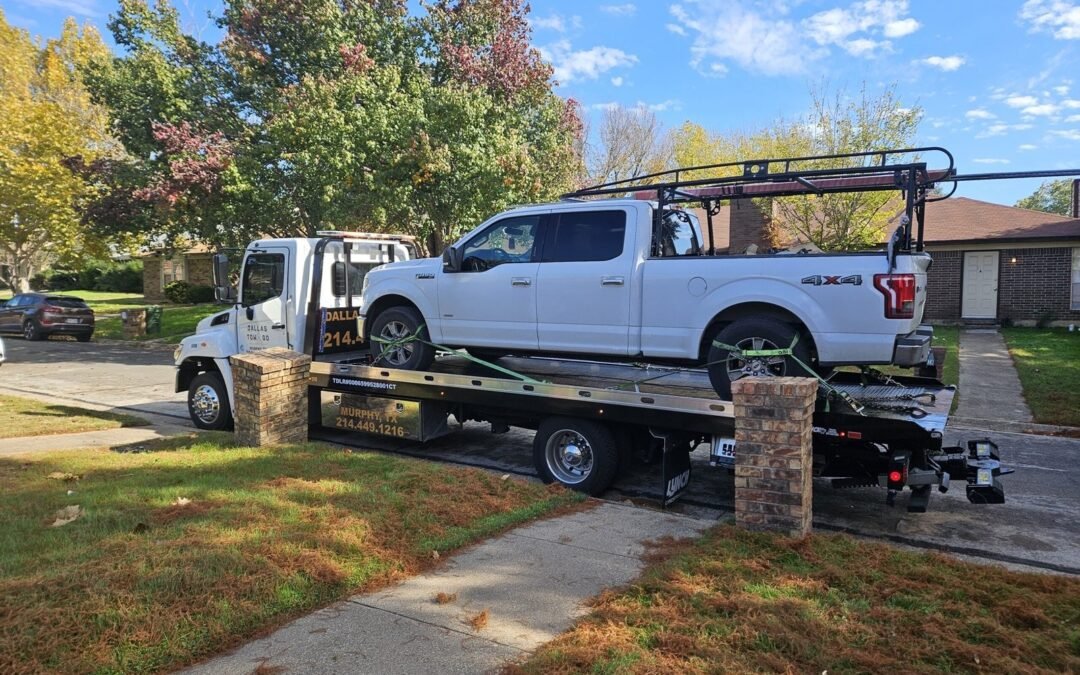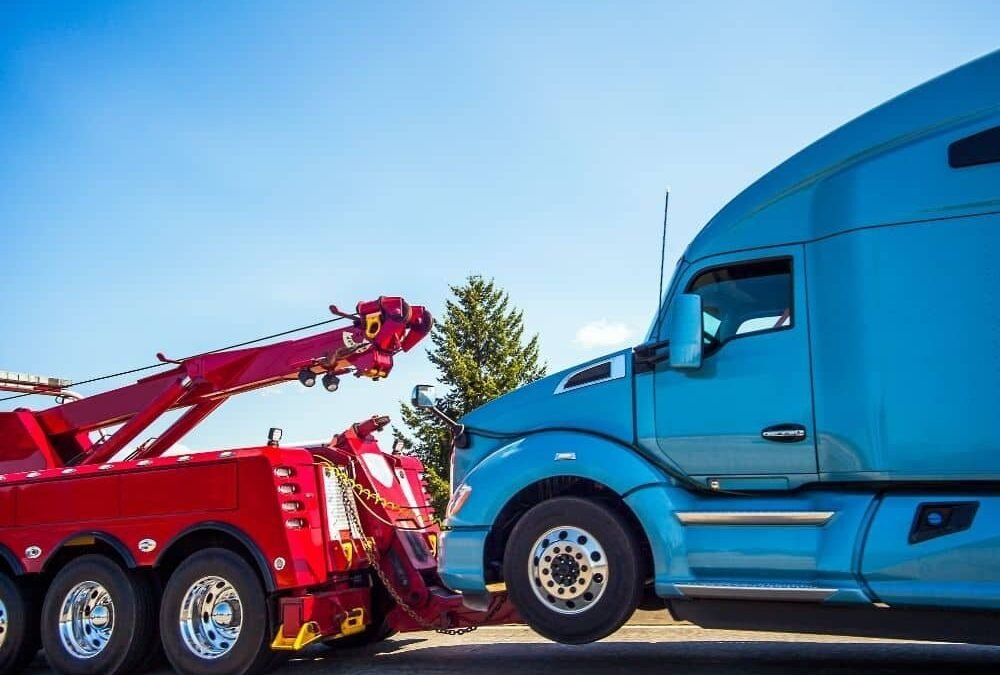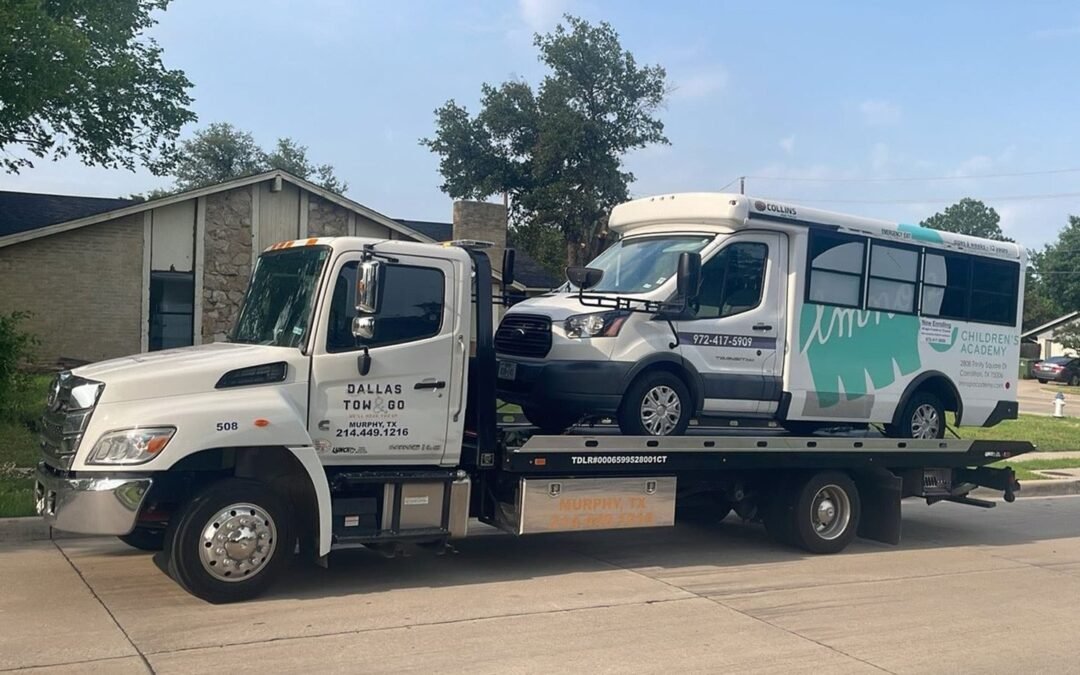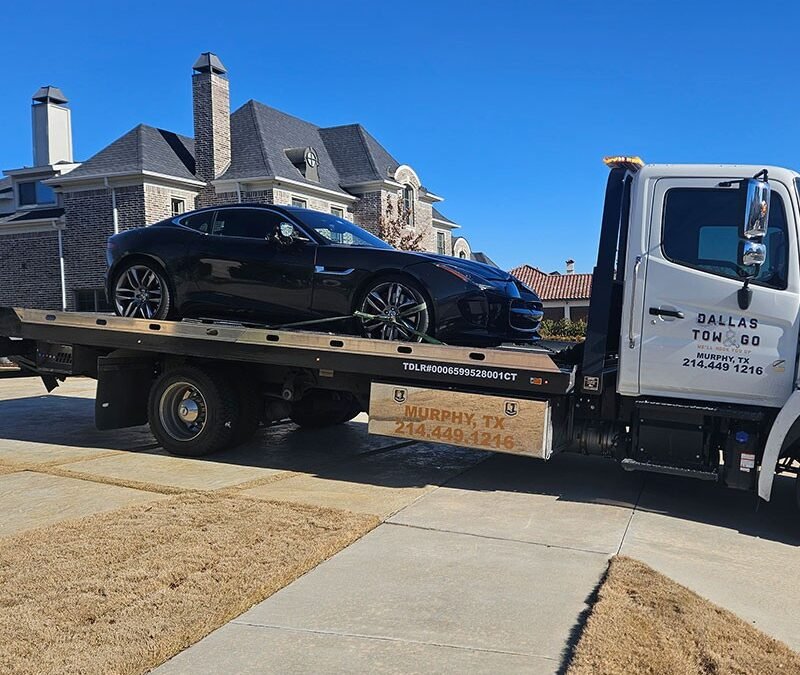Tow services from reputable tow truck companies ensure you’re back on the road quickly; with Dallas Tow and Go you’ll learn how to assess response time, licensing, insurance, and equipment so you select a reliable provider that protects your vehicle and minimizes delays.
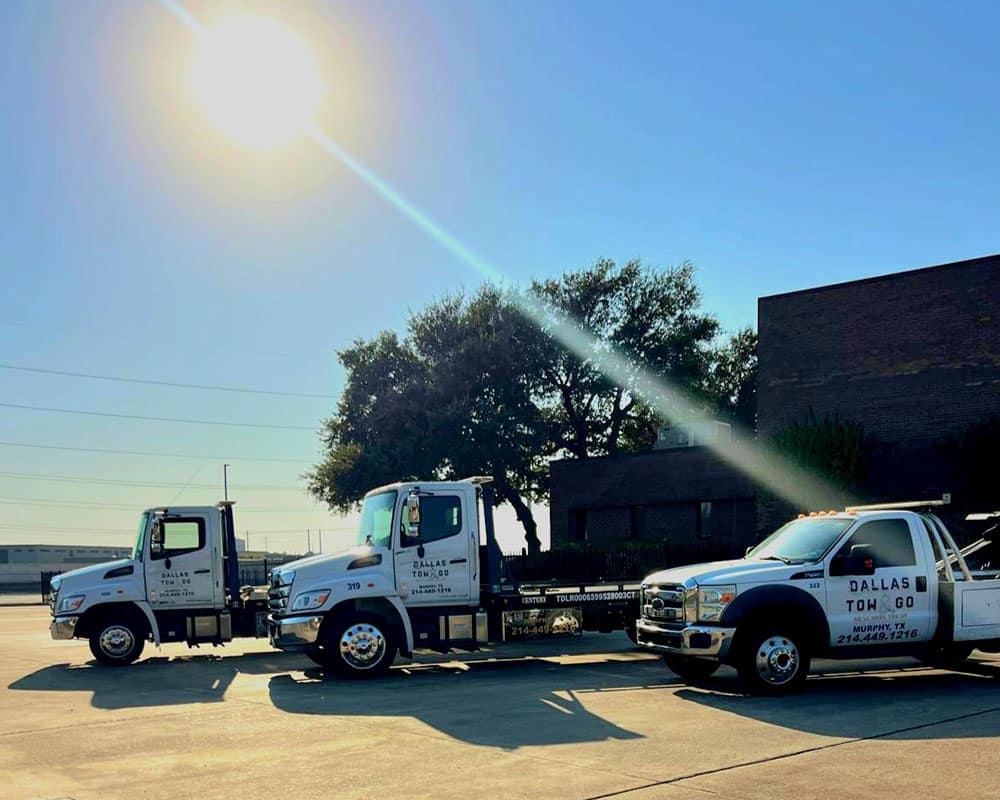
Key Takeaways:
- Dallas Tow and Go positions itself among reliable tow truck companies with 24/7 local response and fast arrival times.
- Comprehensive services: roadside assistance, flatbed towing, winch-outs, and long-distance transport to meet diverse vehicle needs.
- Licensed, insured operators and well-maintained equipment set reputable tow truck companies apart for safe vehicle handling.
- Transparent pricing, upfront estimates, and digital payment options improve trust and simplify service with tow truck companies.
- Strong local knowledge, broad Dallas-area coverage, and positive reviews boost Dallas Tow and Go’s standing among tow truck companies.
The Unsung Heroes of Road Recovery — Dallas Tow and Go
You rely on tow truck companies the moment a breakdown or crash halts your day; Dallas Tow and Go answers with a 24/7 fleet that handles disabled vehicles, heavy recoveries, and scene stabilization. Technicians arrive equipped with battery boosters, flatbeds, and wheel-lifts, and often clear local arterials within 20–30 minutes, reducing your downtime and preventing secondary incidents.
Towing Services Beyond the Basic Hook
You expect more than a hook: flatbeds for EVs and luxury cars, wheel-lifts for quick SUV moves, and heavy-duty rigs for buses and construction equipment. Dallas Tow and Go offers secure long-distance towing up to 150 miles, motorcycle cradles, and enclosed transport for high-value vehicles, plus GPS tracking so you know your vehicle’s location and ETA throughout transit.
Emergency Response: More than Just a Tow
You get on-scene traffic control, winch-outs from ditches, fuel delivery, and battery jumps alongside towing, with crews coordinating directly with police and insurers. Dallas Tow and Go dispatches trained operators to manage lane clearance and vehicle stabilization, aiming to restore traffic flow quickly while documenting damage for claims and liability purposes.
Operators hold industry-standard certifications such as WreckMaster and follow Traffic Incident Management guidelines; trucks carry recovery winches rated up to 50,000 lbs, adjustable air cushion lifting systems, and portable light towers for night incidents. You benefit from documented chain-of-custody procedures and digital photos used in 90% of handled claims to speed insurance processing and minimize disputes.
The Business of Towing: Uncovering Profit Margins and Operational Costs for Tow Truck Companies
Analyzing the Financial Model of Tow Truck Operations
You’ll find gross margins for tow truck companies often sit between 25–40% before overhead, while net margins typically range 8–18% after wages, insurance, and maintenance. Expect driver labor at $3,000–6,000/month per driver, insurance $700–2,500/month per truck, and fuel/maintenance $1,000–2,000/month. For example, a 3-truck Dallas operation pulling $40,000/month in revenue can net roughly $3,200–6,000 after fixed costs if utilization and dispatch efficiency stay strong.
The Impact of Location on Service Pricing
You can charge 20–50% more in dense urban zones like downtown Dallas compared with outlying suburbs, driven by higher incident frequency and traffic recovery difficulty. Standard local tows in the metro area average $85–180, while special recoveries or accident cleanups commonly hit $200–500. Positioning near highways, the airport, or major event venues pushes your per-job rates upward and increases idle-to-busy conversion rates.
Density and municipal relationships shape revenue predictability: downtown operators may handle 2–3 tows per shift versus 0.5–1 in quieter neighborhoods, and a municipal impound contract paying $60–120 per tow can supply steady volume that offsets lower per-job margins. You should analyze call volume heat maps, competitor response times, and contract opportunities—landing even one large fleet or city contract can raise annual revenue by 15–30% for a small Dallas fleet.
Revenue Routes — The Financial Landscape of Towing Operations
Fixed and variable costs shape your bottom line: truck payments of $700–$1,200/month per unit, insurance $1,500–$3,500/year, driver wages $18–$28/hour, and fuel/maintenance averaging $0.60–$1.10/mile. A busy Dallas Tow and Go truck handling 30–40 tows weekly can cover fixed costs and target gross revenue in the low five figures per month; aim for 10–20% net margins after payroll, storage fees, and reinvestment in equipment.
Pricing Strategies: Balancing Costs and Customer Expectations
Set tiered fees: common structure includes a base hook fee $75–$125, per-mile charge $2.00–$3.00 after the first 5 miles, and after-hours surcharges 25–35%. You can offer membership plans and negotiated flat-rate contracts with local auto shops to guarantee volume. Transparency on invoices reduces disputes; list labor minutes, mileage, and storage days. This approach helps tow truck companies like Dallas Tow and Go maintain predictable cash flow.
Navigating Insurance Claims: A Tow Truck Company’s Perspective
You frequently coordinate directly with insurers (State Farm, Allstate, local carriers) and should capture policy numbers, adjuster names, and claim IDs at dispatch; typical claim cycles run 30–60 days. Dallas Tow and Go expedites reimbursement by submitting itemized invoices, timestamped photos, and signed tow authorizations within 7 days, shortening follow-up and improving cash recovery.
Adopt a standardized documentation workflow: record VIN, odometer, owner ID, GPS tow-route logs, and multiple-condition photos to establish chain-of-custody. Upload invoices and evidence through insurer EDI portals or email within 7–14 days, and keep a published fee schedule that aligns with major carriers to reduce underpayments. If a claim is denied, submit an appeal with labor logs, storage receipts, and GPS data—many denials reverse once clear, time-stamped proof is provided.
Behind the Wheel: Technology Driving Tow Truck Companies Today
You see modern tow rigs packed with integrated sensors, telematics and hydraulic systems that change how you respond. Manufacturers like Jerr‑Dan and Miller Industries supply wheel‑lift and slide‑bed rigs rated from 7,000 lb light‑duty beds to 60‑ton heavy rotators, while onboard cameras and remote controls let you hook and winch from a safe distance. These combined systems shave minutes off service times and improve safety across Dallas Tow and Go’s fleet.
Innovations in Tow Truck Design
You work with slide‑beds that tilt and fully slide in under 30 seconds, hydraulic winches rated 20,000–50,000 lb, and modular wheel‑lift assemblies that reduce hookup time by one to two minutes per call. Manufacturers have introduced aluminum bodies to cut weight and increase payload, and rotator cranes with 360° rotation let you recover overturned trucks from tight spots without heavy crane rentals.
GPS and Communication Systems Enhancing Efficiency
You rely on GPS and fleet telematics that provide location fixes accurate to 3–10 meters and update every 10–30 seconds, enabling dispatch to assign the nearest unit. Real‑time ETAs, two‑way messaging and job‑status updates let you prioritize calls, reduce idle mileage, and give customers timely arrival windows—vital for Dallas Tow and Go’s reputation among local motorists.
Deeper integration ties GPS data to your mobile app so drivers upload incident photos, odometer reads and signatures directly at the scene. Geofencing alerts trigger when units enter service zones, while route optimization cuts drive time during rush hours (typically 6–9 AM and 4–7 PM). Telemetry also feeds into analytics for staffing and maintenance scheduling, lowering downtime and keeping more trucks available for calls.
Rapid Rescue — The Intersection of Technology and Towing
Modern rigs marry telematics, AI routing and mobile interfaces so you see real-time vehicle health, predictive maintenance alerts and dynamic dispatch working together; telematics sensors flag hydraulic anomalies before failures, AI reduces empty miles by up to 15–25%, and cloud dashboards let you audit every job for compliance — a combination that transforms how tow truck companies deliver speed and reliability to customers on the road.
GPS and Fleet Management: Efficiency in Action
GPS fleet management gives you live location, geofencing and ETA accuracy so dispatchers assign the nearest rig automatically; route optimization alone can lower response times by 15–25% and cut fuel use, while telematics tie into maintenance schedules to reduce downtime — Dallas Tow and Go uses geofences to auto-assign units within a 5‑mile radius, trimming average dispatch from 18 to 12 minutes.
The Role of Mobile Apps in Customer Experience
Mobile apps let you offer transparent ETAs, photo uploads and contactless payments, creating trust and reducing uncertainty during stressful breakdowns; customers can track the truck live, see driver info, and pay in-app, and many operators report a 30–40% drop in inbound calls after launching apps — Dallas Tow and Go’s app consistently rates highly for speed and clarity.
Deeper app features you should prioritize include secure tokenized payments (Apple Pay/Google Pay), integrated dispatch APIs that push live driver locations, photo/time-stamped job records for claims, and push/SMS ETA updates; these elements not only streamline operations but give you audit trails for invoices, improve dispute resolution, and let repeat customers book and view service history in seconds.
The Legal Landscape: Navigating Regulations and Laws Governing Towing
State statutes and local ordinances shape what your tow truck companies can and cannot do, while federal rules intervene when you cross state lines or operate as a commercial carrier; you must maintain proper licensing, bonding, insurance and documented rate schedules, comply with storage and lien timelines, and keep records for audits and disputes to avoid fines, civil suits, or license revocation.
States vs. Federal Regulations: A Complex Puzzle
Each state sets licensing, signage, maximum storage fees and release procedures, but federal requirements—USDOT registration, FMCSA safety and driver rules—kick in for interstate work or commercial registrations; if you tow between Texas and neighboring states you’ll need to track differing impound hold times, municipal permit rules in Dallas, and any federal reporting obligations tied to vehicle weight or driver hours.
Ethical Considerations in Towing Services
Predatory practices—towing without clear notice, inflating fees, failing to verify ownership—damage reputation and invite legal action, so you should adopt transparent pricing, conspicuous signage, documented authorization, prompt vehicle-release procedures and customer-friendly billing to reduce complaints and regulatory scrutiny.
Operational safeguards you can implement include itemized receipts, timestamped photos or video at hook-up, GPS logs of tows, written consent for private-property removals, trained dispatchers to verify ownership, and an accessible dispute-resolution process; these steps lower litigation risk, improve community relations in Dallas, and provide evidence if regulators audit your tow truck companies or a consumer files a complaint.
Regulatory Challenges Facing Tow Truck Companies: Compliance in Dallas and Beyond
State Regulations: Navigating Compliance and Licensing
State licensing frameworks force you to maintain up-to-date permits, driver background checks, vehicle inspections and insurance/bonding to operate legally; fees commonly range from $50–$500 annually while bonds often fall between $10,000–$50,000. In Texas, the Department of Licensing and Regulation oversees aspects of towing and storage facility registration, and interstate hauls pull you under FMCSA commercial-vehicle rules, so tow truck companies that cross state lines must meet federal safety and driver-hour standards too.
The Impact of Municipal Policies on Operations
City-level rules dictate who you service and how you bill: police-ordered rotation lists, permit programs, local rate caps and signage requirements directly influence call volume and margins. Many municipalities limit approved vendors to roughly 6–12 on rotation, require posted rates on vehicles and set impound-holding rules, so Dallas Tow and Go must align operations with Dallas Police and city permit requirements to keep steady access to accident and impound work.
Operational compliance goes beyond permits: you need documented rates, itemized invoices, photographed evidence for tows, and storage yards meeting local safety standards like fenced perimeters and nighttime lighting. Municipalities commonly demand record retention (typically 3–5 years) and timely dispute resolution; noncompliance can mean fines, consumer lawsuits or removal from contracted rotation lists, directly shrinking revenue streams for tow truck companies.

Real-Life Scenarios: When and Why You Might Need a Tow Truck — Dallas Tow and Go Cases
In Dallas traffic you may call tow truck companies like Dallas Tow and Go for stalled engines on I-35, dead batteries, or collisions; you’ll get services from jump-starts and tire changes to winch-outs and flatbed recovery. Typical urban response times run 25–40 minutes and most rigs handle 6,000–12,000 lb vehicles, so you receive the right equipment whether your vehicle is a sedan, SUV, or light truck.
Emergency Situations: Breakdown vs. Accident Recovery
For breakdowns you often need a quick jump-start, fuel delivery, or tire change that gets you moving within 20–40 minutes; accident recovery demands scene control, coordination with police and insurers, and heavy-duty flatbeds or rotators for severe damage. You’ll notice accident tows usually cost 1.5–3× standard tow rates because of extra manpower, winching, and mandated storage procedures.
Non-Emergency Towing: Vehicle Storage and Impounds
Scheduled relocations, repossessions, and municipal impounds follow different rules: you’ll face hold periods, administrative paperwork, and daily storage charges averaging $20–50 in Dallas. If your vehicle is towed from private property you must present proof of ownership and valid ID to reclaim it, and confirming lot location and hours before you go prevents extra daily fees.
Many tow truck companies, including Dallas Tow and Go, maintain secured lots with 24/7 video surveillance, itemized inventories, and online payment for faster release; you should expect release fees commonly between $50–$100 and be ready with title or registration. Long-term storage can trigger lien actions after 30–90 days, so contacting the operator within 48 hours limits added costs and administrative complications.
Building Trust in a Competitive Market — Rapid Rescue by Dallas Tow and Go
The Importance of Reputation Management
High scores drive calls: tow truck companies with a 4.5+ average rating attract about 30% more business. You should monitor Google, Yelp and Facebook daily, respond to every review within 24 hours, and log complaints in a CRM to spot recurring issues like slow response times. Dallas Tow and Go cut negative reviews by 40% in six months using that workflow.
Customer Loyalty Programs: Strategies That Work
Tiered memberships and instant credits turn one-off customers into repeat clients. Offer $49/year basic roadside coverage and $149 premium with priority dispatch plus 10% off tows; you’ll boost retention and average ticket size. Dallas Tow and Go’s pilot produced an 18% revenue lift and a 22% rise in repeat bookings in year one.
Layer referral incentives ($25 tow credit), automated SMS reminders after service, and a digital punch card for discounts, then link offers to telematics triggers (low battery or maintenance alerts) for targeted outreach. Track customer lifetime value, automate renewal nudges, and A/B test offers; after adding SMS and a $25 referral credit, Dallas Tow and Go pushed repeat bookings from 12% to 22% in six months.
Customer Experience in the Towing Industry: Building Trust and Reputation — Dallas Tow and Go
Your trust in tow truck companies hinges on measurable reliability: transparent pricing, ETA accuracy, and safety. You expect clear quotes and GPS-based tracking; 70–80% of motorists favor providers that show real-time arrival. Dallas Tow and Go emphasizes trained technicians, modern flatbeds, and a 24/7 dispatch that aims for sub-20-minute response windows in central Dallas to convert stressful breakdowns into predictable, reassuring service.
How Reviews Shape Perceptions of Tow Truck Companies
You and other drivers often consult reviews before calling for a tow; industry surveys show over 80% read ratings first. Star averages and recent comments drive your split-second choice between competitors: a 4.5+ rating with recent mentions of courteous drivers and on-time arrival typically beats a lower-rated firm, so Dallas Tow and Go highlights verified customer stories and time-stamped reviews to showcase consistent performance.
The Role of Customer Service in a Competitive Market
You judge tow truck companies by the whole interaction: how dispatch handles your call, whether technicians explain damage risks, and if follow-up occurs after service. Companies that log first-contact resolution rates above 90% and publish average wait times gain repeat business; Dallas Tow and Go tracks response metrics and posts clear service policies so you know expected costs and procedures before arrival.
You benefit when customer service combines technician training and process metrics: drivers complete 40 hours of annual equipment and safety training, dispatchers follow scripted verification to reduce billing disputes by roughly 25%, and automated SMS ETAs lower caller anxiety. Implementing these practices helps you experience faster, clearer, and more professional service that builds the reputation tow truck companies rely on.
Final Words — Dallas Tow and Go
Taking this into account, you should choose tow truck companies like Dallas Tow and Go that provide prompt response, transparent pricing, licensed operators, and careful vehicle handling, so your roadside needs are handled efficiently and with professional assurance.
FAQs
Q: What services do tow truck companies like Dallas Tow and Go provide?
A: Tow truck companies offer a range of services including local and long-distance towing, emergency roadside assistance (jump starts, tire changes, fuel delivery), lockout service, winching/recovery from ditches or off-road, flatbed transport for motorcycles and exotic cars, and vehicle storage/impound.
Q: How long will it take for a tow truck to arrive in Dallas?
A: Arrival time varies by traffic, time of day, and call volume; in urban Dallas areas most tow truck companies typically aim for 20–40 minutes.
Q: How do tow truck companies charge, and what should I expect to pay?
A: Pricing usually includes a base hookup or service fee plus a per-mile charge; additional fees can apply for after-hours calls, winching, heavy-duty vehicle handling, or long-distance towing.
Q: Are tow truck companies licensed and insured, and how can I verify that?
A: Legitimate tow truck companies are licensed by state or local authorities and carry liability and cargo insurance to protect your vehicle.
Q: What should I look for when choosing a tow truck company after a breakdown or accident?
A: Choose a company with clear pricing, positive reviews, appropriate equipment for your vehicle, and 24/7 availability. Confirm the truck type (flatbed for all-wheel-drive or specialty vehicles), estimated arrival time, and proof of insurance before work starts.
Need fast and reliable help on the road? Dallas Tow and Go stands out among top tow truck companies in Dallas, delivering quick, professional, and affordable towing services. Call us today and get back on the road with confidence!
Also read:
How Do 24/7 Towing Services Dallas TX Save Lives?
Towing in Dallas: What are 7 Must-Have Tools for Beginners?
How to Tow EVs Safely: Guidelines for Electric Vehicles Towing

